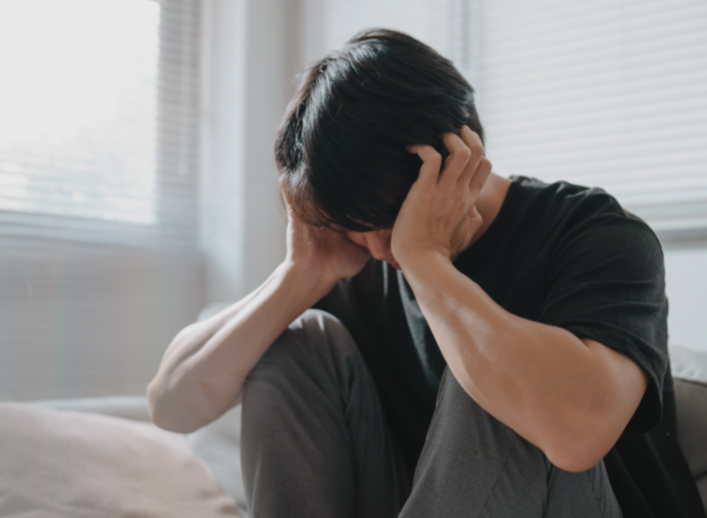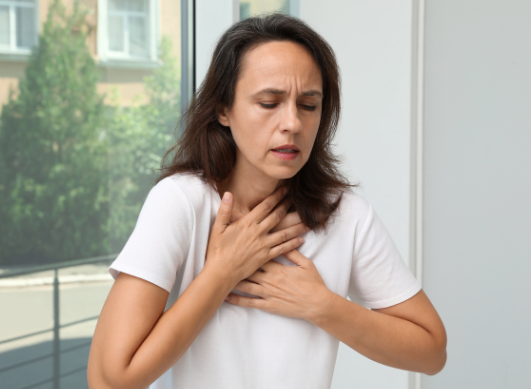- Home
- Forums
- COPD Forum
- Symptoms and complications of COPD
- COPD can’t be cured, but symptoms can be eased
Patients COPD
COPD can’t be cured, but symptoms can be eased
- 111 views
- 1 support
- 2 comments
All comments
![]()
Loracs
![]()
Loracs
Last activity on 29/10/2024 at 13:16
Joined in 2015
6 comments posted | 2 in the COPD Forum
Rewards
-
Committed
-
Explorer
This was so interesting to read,as I am a COPD sufferer.i intend to give up smoking in the new year,as I've just had a very bad chest infection,and after being a life long smoker,now is the best time for me to quit.
See the signature
caroline
![]()
WillWoosgrove
![]()
WillWoosgrove
Last activity on 01/10/2025 at 15:32
Joined in 2016
This is just general information that I already knew. I would prefer more up to date scientific information/data/analysis and discission.
Give your opinion
Survey
Survey
Members are also commenting on...
Articles to discover...
Medication fact sheets - patient opinions...
Subscribe
You wish to be notified of new comments
Your subscription has been taken into account









Gilda
Community managerGood advisor
Gilda
Community manager
Last activity on 03/02/2023 at 15:26
Joined in 2015
710 comments posted | 20 in the COPD Forum
Rewards
Good Advisor
Contributor
Messenger
Committed
Explorer
Evaluator
If you have COPD, the airways of your lungs get inflamed, with thicker walls and narrower channels than usual, and the parts of your lungs where oxygen enters and carbon dioxide leaves your blood (called alveoli) are destroyed. Your body works harder to get air in and out of your lungs and oxygen to your body.
You can experience a chronic cough and shortness of breath. Inflammation causes wheezing and increased mucus in your airways, increasing your risk of chest infections. When severe, COPD can cause persistently low oxygen levels, causing blue lips and fingernail beds and fatigue. All of these things can make it more difficult to recover from a cold or the flu. Even though I recommend an influenza vaccine to all my patients, I especially recommend it to patients with COPD.
In the United States, 85 to 90 percent of people with COPD develop it because of cigarette smoking. COPD is a sneaky disease. You are damaging to your lungs long before you have any noticeable or inconvenient symptoms. The best thing you can do to prevent COPD or slow it from getting worse is to stop smoking.
Other things that can contribute to COPD are chronic exposure to air pollution, secondhand smoke and high levels of dust. We should all work to reduce our exposure to these things to protect our health. I’ve had many patients develop COPD because their spouses were smokers who frequently smoked in the house.
Once you have COPD, it cannot be cured. But you can take steps to help keep it from getting worse and improve your quality of life. If you smoke, quit. It is never too late to quit smoking to slow down the damage to your lungs. I have had many patients who looked like they were at death’s door but when they stopped smoking, they went on to live many years. The American Lung Association and the national tobacco quitline both offer resources to help you quit.
Medication often plays an important role in the treatment of COPD. Taken at the proper time, medication can make it easier to breathe, do more activities you enjoy, and help prevent flare-ups (also called exacerbations). There are many medicines available for daily treatment of COPD. Different medications are used to treat COPD flare-ups. Bacterial lung infections, which can trigger a flare-up, are treated with antibiotics.
I also find that pulmonary rehabilitation can help patients with COPD enjoy life more. This can include education, exercise, nutrition advice and counseling. It may seem counterintuitive that exercise can help with COPD, but gradually getting more physically fit after being diagnosed with COPD can help you better manage your disease and enjoy a better quality of life.
In more severe cases of COPD, a person who is not getting enough oxygen even with treatment can use supplemental oxygen to function more normally, improve sleep and mood, increase alertness and stamina and prevent heart failure. COPD can lead to heart failure because your heart has to work harder to get oxygen to all the cells in your body.
If you think you might have COPD, see your health care provider. Although it can’t be cured, it can be slowed down and managed.
The Spokesman-Review